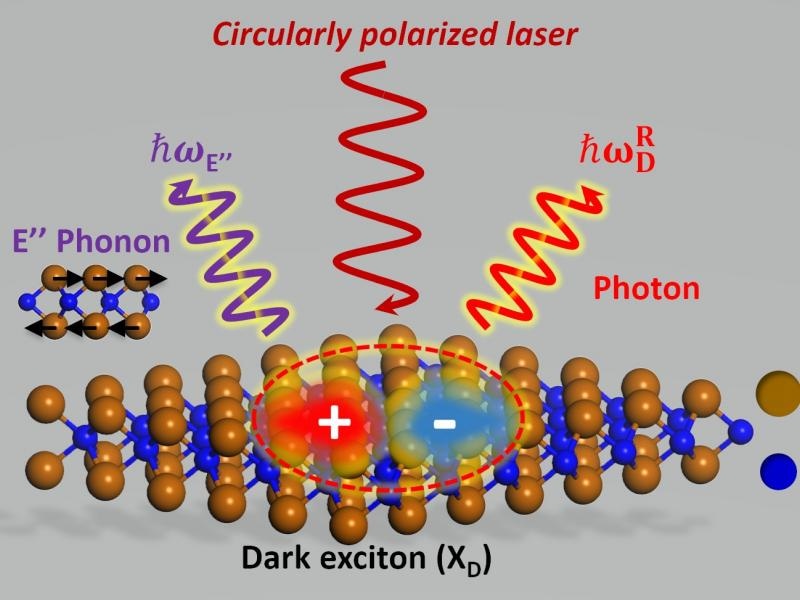Jun 7 2019
Rensselaer Polytechnic Institute scientists have developed a way to exploit tungsten diselenide (WSe2) — a favorable two-dimensional (2D) material — to unlock its potential further and facilitate faster, more effective computing, and even quantum information processing and storage. Their findings were reported recently in Nature Communications.
 Image credit: Rensselaer Polytechnic Institute
Image credit: Rensselaer Polytechnic Institute
Around the world, scientists have been heavily concentrated on a group of 2D, atomically thin semiconductor materials called monolayer transition metal dichalcogenides. These atomically thin semiconductor materials, measuring less than 1 nm thick, are appealing as the industry attempts to build devices that are smaller and more power efficient.
“It’s a completely new paradigm,” said Sufei Shi, assistant professor of chemical and biological engineering at Rensselaer and corresponding author on the paper. “The advantages could be huge.”
Shi and his research team, in coordination with staff from the Micro and Nano Fabrication Clean Room within the Center for Materials, Devices, and Integrated Systems at Rensselaer, have formulated a technique to separate these thin layers of WSe2 from crystals so they can stack them on top of other atomically thin materials such as graphene and boron nitride.
When the WSe2 layer is placed between two boron nitride flakes and interacts with light, Shi said, an exceptional process happens. In contrast to a traditional semiconductor, electrons and holes robustly bond together and form a charge-neutral quasiparticle known as an exciton.
Exciton is probably one of the most important concepts in light-matter interaction. Understanding that is critical for solar energy harvesting, efficient light-emitting diode devices, and almost anything related to the optical properties of semiconductors. Now we have found that it actually can be used for quantum information storage and processing.
Sufei Shi, study co-author and Assistant Professor of Chemical and Biological Engineering at Rensselaer
Shi is also a member of the department of electrical, computer, and systems engineering at Rensselaer.
One of the stimulating properties of the exciton in WSe2, he said, is a novel quantum degree of freedom that is being referred to as “valley spin” — an increased freedom of movement for particles that has been observed for quantum computing. But, Shi explained, excitons normally do not possess a long lifetime, which makes them unviable.
In an earlier publication in Nature Communications, Shi and his team discovered a distinct “dark” exciton that generally cannot be seen but possesses a longer lifetime. Its challenge is that the “dark” exciton lacks the “valley-spin” quantum degree of freedom.
In this latest research Shi and his team discovered how to brighten the “dark” exciton; that is, to make the “dark” exciton interact with another quasiparticle called a phonon to form a totally new quasiparticle that comprises of both properties scientists want.
We found the sweet spot. We found a new quasiparticle that has a quantum degree of freedom and also a long lifetime, that’s why it’s so exciting. We have the quantum property of the ‘bright’ exciton, but also have the long lifetime of the ‘dark’ exciton.
Sufei Shi, study co-author and Assistant Professor of Chemical and Biological Engineering at Rensselaer
The team’s findings, Shi said, build the basis for further development toward the next generation of computing and storage devices.
At Rensselaer, Shi was joined on this research paper by postdoctoral scholar Zhipeng Li and graduate students Tianmeng Wang and Zhen Lian, all from the department of chemical and biological engineering. This study was also carried out in close collaboration with the National High Magnetic Field Lab and other research institutions.
This study was mainly sponsored by the Air Force Office of Scientific Research.